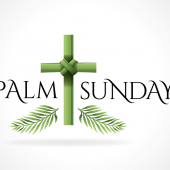Be rooted in the knowledge of who you are

March 23, Thursday, Fourth Week of Lent
Exodus, 32:7-14; John 5:31-47
One of the most difficult experiences in life is to speak to a group that neither believes in who you are nor trusts the words you say.
We see that Jesus is having an audience who are filled with negative beliefs about him. At the same time, they had faith in the words of Moses; he knows that. They easily went by the ascetical ways of John the Baptist who wore camels’ hair and ate locusts and wild honey. In the present scenario, the audience not only said that they did not trust his words, but in their heart of hearts, they have turned against him. We see that the messiah is brought to his knees.
I see that his strength to stand a difficult and challenging audience came from three simple truths he knew about himself. One of them is the work that he does. The best answer to who we are comes often not from our words, but our deeds. The deeds will speak out in volumes, silently and clearly what our true intentions in life are. The tree is known for its fruits. And the good works will keep on knocking at the door of their conscience.
And the next asset is one’s own true self-knowledge. The power that comes from knowing who you are, is probably greater than words and deeds. Before He started his new mission, he was shown who he was at his Baptism in the river Jordan. All his major doubts got clarified at that time. He knew he was God’s beloved. He knew that it won’t be easy to change their minds but he knows he is the new wine. The most foundational experiential knowing of Almighty God as his Abba would be the final and the ultimate spiritual strength that would help him to face all the challenges, including crucifixion.
Three things that can help us to face the challenges of our lives would be, self-knowledge, experiential knowing of God and our life lived doing good deeds.
Be rooted in the knowledge of who you are; who God is and allow your deeds to stand as testimony to your words.
Radio Veritas Asia (RVA), a media platform of the Catholic Church, aims to share Christ. RVA started in 1969 as a continental Catholic radio station to serve Asian countries in their respective local language, thus earning the tag “the Voice of Asian Christianity.” Responding to the emerging context, RVA embraced media platforms to connect with the global Asian audience via its 21 language websites and various social media platforms.














